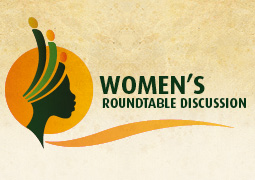
A proposal for legislation to decriminalise sex work was tabled among resolutions during a brainstorming session on the topic, the Effectiveness of Parliamentary Tools in Advancing Women's Rights.
The proposal was raised by Sweat during a breakaway commission as part of the proceedings of the Women's Roundtable discussion in Parliament today, Wednesday 2 September 2015.
Ms Ishtar Lakhani, Human Rights and Lobbying Officer at Sweat, said the criminalisation of sex work was based on old apartheid legislation and needed to be reviewed. She said the absence of laws decriminalising sex allowed for more gender violence and she appealed to Parliament to legislate for the protection of the rights of sex workers.
"We need to revisit apartheid and replace the legislation with others that speak to reality today and that is aligned to the Constitution of the country. Let's decriminalise sex work to prevent further abuse," she said.
The 1957 Sexual Offences Act (previously called the Immorality Act) outlaws selling and buying, making both sex worker and the client guilty of a crime.
In previous submission to Parliament's Multi-Party Women's Caucus, civil society organisations advocating for the rights of sex workers said criminalising sex work enabled widespread abuse of power by police officers and other people in positions of power. They said it also enables stigma, prevented access to rights and was also unenforceable.
The Sexual Offences Act requires high levels of proof. Therefore bylaws such as loitering and public drinking are used. Fines are an ineffective tool. A criminal record reduces the chances of sex workers finding work elsewhere.
Other participants in the Roundtable Discussion warned women against using the laws meant to protect them for the wrong reasons. It was reported that some women often abused the Domestic Violence Act to get back at their men and others forced their young children to lie about being raped by a relative or a neighbour they did not like.
Ms Vuyiswa Mxothwa from the non-governmental organisation Sisters Abiding in Light and Truth (Salt) said in creating more opportunities for the girl child, society must guard against leaving the boy child behind.
"By leaving the boy child behind we will be indirectly raising a boy child growing up feeling neglected and could trigger hatred and trigger violence towards the girl child who is getting more opportunities,' she said.
Sakhile Mokoena
2 September 2015

